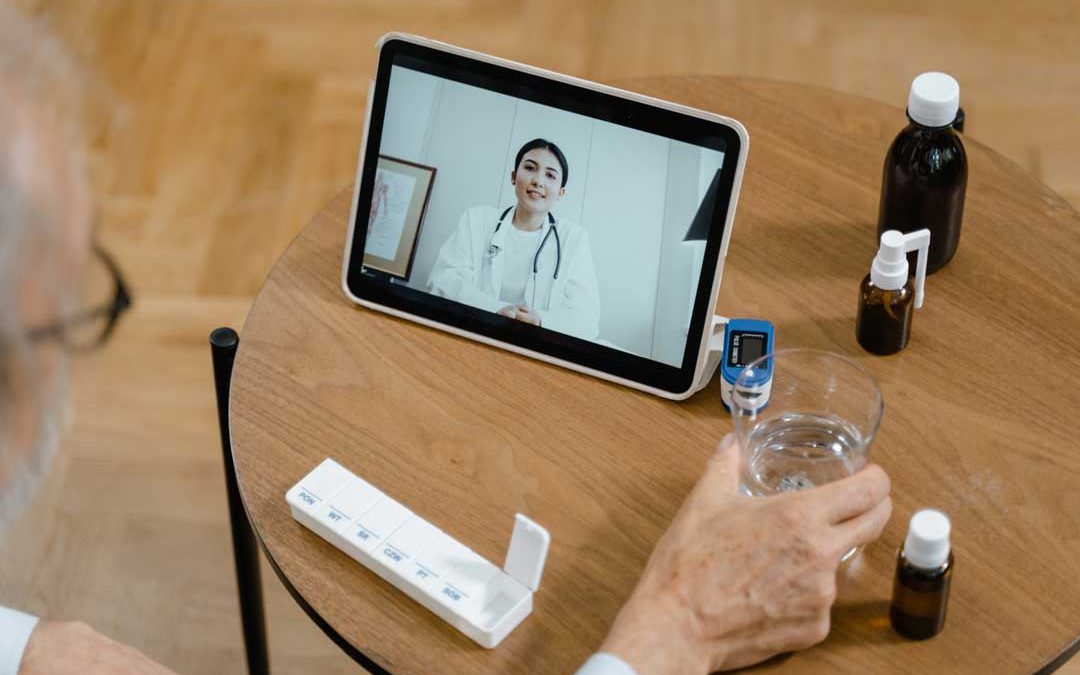How Digital Transformation Can Be Successfully Implemented Within the UK Health Sector

As the internet and technology have boomed in popularity over the years, more and more businesses have decided to embrace digital transformation. Healthcare companies worldwide have greatly benefited from switching many of their services to online, helping patients gain more accessible access to the healthcare they need.
COVID-19 has accelerated global efforts to deliver digital healthcare. Throughout the global effort to mitigate the spread of COVID-19, many traditional services have rapidly pivoted towards innovative remote access care. The inherent inertia in legacy healthcare systems was swiftly superseded by an urgent need to facilitate remote healthcare delivery, which has created a digital health boom.
What is Digital Transformation?
Digital transformation can be defined as merging digital technology into the different aspects of a business. In terms of healthcare, digital transformation can help patients access a wider network of information and doctors, allow doctors to focus on patients who genuinely need their help, and so much more.
How Digital Transformation Can Be Successfully Implemented Within the UK Health Sector
Digital transformation can be revolutionary for the UK Health Sector- if it is successfully implemented. In the early days of the Covid-19 pandemic, general practice in England transformed itself, rapidly adopting digital approaches to triaging and consulting at a speed that would have been unthinkable just months before. The timeline set out in the NHS Long Term Plan, which promised every patient the ‘right’ to digital primary care services by 2024, has been blown away.Digital transformation can be successfully implemented by:
Emphasising Patient – Centred Approaches
As technology and the internet become a more significant part of our lives, patients know more about their own bodies and the healthcare options available to them than ever before. This access to information has allowed them to become much more active decision-makers in options pertaining to their health.
Focusing on patient- centred approaches, like the development of “smart” wearable devices and other products that allow patients to access data to their health will profoundly benefit patients, doctors, and caregivers across the UK.
Creating a More Effective Workflow
Digitalising the UK health sector workflow provides immense advantages to doctors and patients everywhere. Creating a digital system that makes every step of the healthcare process smoother will allow the UK health sector to flow with ease and efficiency, increasing patient satisfaction and improving the health sector’s overall performance.
Changing the Work Environment
As digital transformation changes the way the UK health sector works, employees in healthcare must reevaluate their job duties and responsibilities. Healthcare positions, such as doctors, nurses, and managers, will be changed. Specific daily tasks will become digitalised, while others will be focused on more than ever before. Preparing healthcare employees for this shift in job duties is crucial for a smooth transition.
Why Digital Transformation Should Be at the Forefront of the Health Sector Agenda
The UK is struggling with a shortage of available doctors. As of 2021, there has been an estimated increase of 300 patients per GP compared to 2015. That is a considerable increase in work each doctor in the UK faces every day.
This work increase can lead to a multitude of problems, including burnout and an inability to give each patient the time and effort they need. Doctors in the UK are inundated with work, leaving them struggling mentally and physically. This, paired with the amount of work needed to be done in a small amount of time, is impacting the quality of healthcare.
Utilizing digital transformation in the healthcare field just may be the help our doctors so badly need, allowing patients to become a more active voice in their own healthcare. This is precisely why CheckUp Health was created- to empower both patients and their doctors to take control of their health.
References:
https://www.sciencedirect.com/science/article/pii/S0148296320306913
https://link.springer.com/article/10.1007%2Fs13162-019-00140-0
https://www.emerald.com/insight/content/doi/10.1108/BPMJ-04-2017-0084/full/html